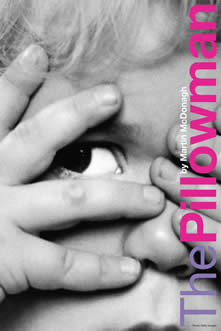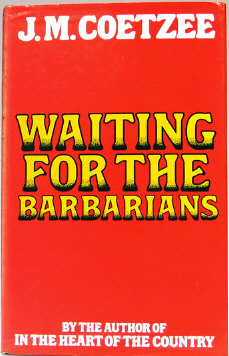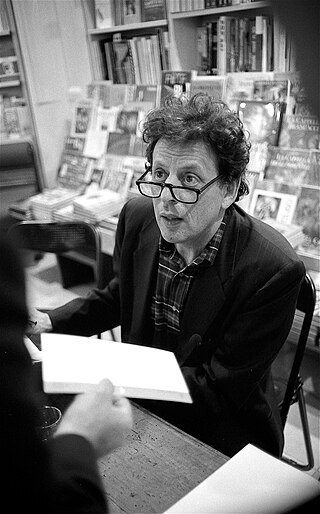
Einstein on the Beach is an opera in four acts composed by Philip Glass and directed by theatrical producer Robert Wilson, who also collaborated with Glass on the work's libretto. The opera eschews traditional narrative in favor of a formalist approach based on structured spaces laid out by Wilson in a series of storyboards which are framed and connected by five "knee plays" or intermezzos. The music was written "in the spring, summer and fall of 1975." Glass recounts the collaborative process: "I put [Wilson’s notebook of sketches] on the piano and composed each section like a portrait of the drawing before me. The score was begun in the spring of 1975 and completed by the following November, and those drawings were before me all the time."

Galileo Galilei is an opera based on excerpts from the life of Galileo Galilei, which premiered in 2002 at Chicago's Goodman Theatre, as well as subsequent presentations at the Brooklyn Academy of Music's New Wave Music Festival and London's Barbican Theatre. The music is by Philip Glass, with libretto and original direction by Mary Zimmerman and Arnold Weinstein. The piece is presented in one act, consisting of ten scenes without break.

Albert Herring, Op. 39, is a chamber opera in three acts by Benjamin Britten.

The Pillowman is a 2003 play by British-Irish playwright Martin McDonagh. It received its first public reading in an early version at the Finborough Theatre, London, in 1995, also a final and completed version of the play was publicly read in 1998 and then finished and released as a book in some places in 1999. Production started in 2000 for the eventual 2003 performance. It tells the tale of Katurian, a fiction writer living in a police state, who is interrogated about the gruesome content of his short stories and their similarities to a number of bizarre child murders occurring in his town. The play received the 2004 Olivier Award for Best New Play, the 2004-5 New York Drama Critics' Circle Award for Best New Foreign Play, and two Tony Awards for production. It was nominated for the 2004 Evening Standard Award for Best New Play.

Waiting for the Barbarians is a novel by the South African writer J. M. Coetzee. First published in 1980, it was chosen by Penguin for its series Great Books of the 20th Century and won both the James Tait Black Memorial Prize and Geoffrey Faber Memorial Prize for fiction. American composer Philip Glass has also written an opera of the same name based on the book which premiered in September 2005 at Theater Erfurt, Germany.

Cendrillon (Cinderella) is an opera—described as a "fairy tale"—in four acts by Jules Massenet to a French libretto by Henri Caïn based on Perrault's 1698 version of the Cinderella fairy tale.

Königskinder is a stage work by Engelbert Humperdinck that exists in two versions: as a melodrama and as an opera or more precisely a Märchenoper. The libretto was written by Ernst Rosmer, adapted from her play of the same name.

Theodora is a dramatic oratorio in three acts by George Frideric Handel, set to an English libretto by Thomas Morell. The oratorio concerns the Christian martyr Theodora and her Christian-converted Roman lover, Didymus. It had its first performance at Covent Garden Theatre on 16 March 1750. Not popular with audiences in Handel's day, Theodora is now recognised as a masterpiece. It is usually given in concert, being an oratorio, but is sometimes staged.

Barbarian Queen is a 1985 American-Argentine fantasy film starring Lana Clarkson, directed by Héctor Olivera and written by Howard R. Cohen. The film premiered in April 1985 in the United States. It was executive produced by Roger Corman, and it was the third in a series of ten movies that Corman produced in Argentina during the 1980s.
Miss Julie is an English-language opera in two acts, with music and libretto by William Alwyn. His second and final opera, premiered in 1977 as a radio broadcast, Alwyn based his opera on the 1888 play Miss Julie by Swedish playwright August Strindberg.
Austin Opera, formerly known as the Austin Lyric Opera, is an opera company based in Austin, Texas. The company was founded in 1986. Its key personnel include Annie Burridge as general director, and Timothy Myers as artistic advisor.

La statue is an opera in three acts and five tableaux by Ernest Reyer to the libretto by Michel Carré and Jules Barbier based on tales from One Thousand and One Nights and La statue merveilleuse, an 1810 carnival play by Alain-René Lesage and Jacques-Philippe d'Orneval.

"The Dreamscape" is the ninth episode of the first season of the American science fiction drama television series Fringe. It centers on a Fringe investigation of a Massive Dynamic employee who, after believing himself to be under attack by a swarm of sharp-winged butterflies, jumps out of a window. Meanwhile, Olivia continues her visions of the deceased John Scott, and discovers how he is related to a deadly psychoactive drug synthesized by Massive Dynamic.

Amelia is an opera in two acts by Daron Hagen to a libretto in English by Gardner McFall based on a story by Stephen Wadsworth. It had its world premiere at the Seattle Opera on May 8, 2010.

"A Witch Shall Be Born" is one of the original sword and sorcery novellas by Robert E. Howard about Conan the Cimmerian. It was written in only a few days in spring of 1934 and first published in Weird Tales in December 1934. A book edition was published in 1975 by Donald M. Grant, Publisher with illustrations by Alicia Austin.
Manifest Destiny 2011 is a British opera composed by Keith Burstein with a libretto by Burstein and Dic Edwards. It is a revision of Burstein and Edwards' previous 2003 opera Manifest Destiny and maintains its predecessor's subject matter of Islamic suicide bombers, the ramifications of both the Middle Eastern conflict and the War on Terror.

The Perfect American is an opera in two acts composed in 2011–12 by Philip Glass. It is an adaptation of the Peter Stephan Jungk novel, Der König von Amerika, a fictional work that re-imagines Walt Disney in his later years as a power-hungry racist. It was commissioned by the Teatro Real in Madrid in co-production with the English National Opera in London.
The Trial is an English-language opera in two acts, with music by Philip Glass to a libretto by Christopher Hampton, based on the 1925 eponymous novel by Franz Kafka. The opera was a joint commission between Music Theatre Wales, the Royal Opera House, Covent Garden, Theater Magdeburg and Scottish Opera.

La Belle et la Bête is an opera for ensemble and film, composed in 1994 by Philip Glass based on a libretto in French by the composer according to the script of the film by Jean Cocteau released in 1946. This is the second part of a trilogy in homage to the French poet after Orphée (1993) and before Les Enfants terribles (1996). The world premiere of the work took place on 4 June 1994 in Seville, with Michael Riesman conducting.

Waiting for the Barbarians is a 2019 drama film directed by Ciro Guerra in his English-language directorial debut. The film is based on the 1980 novel by J. M. Coetzee. It stars Mark Rylance, Johnny Depp, Robert Pattinson, Gana Bayarsaikhan, and Greta Scacchi.
















